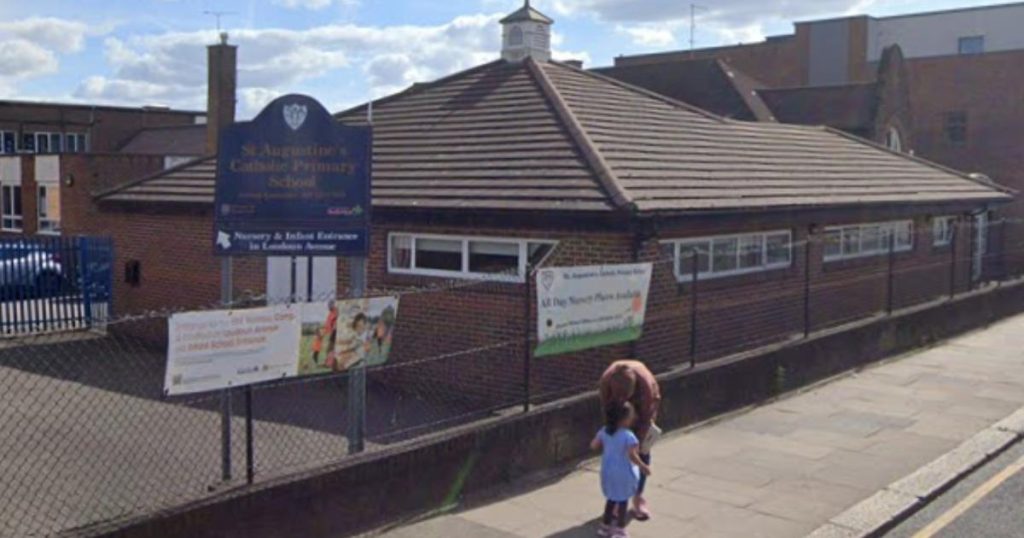St Augustine’s Catholic Primary School, which teaches pupils from nursery to Year 6, was visited by the education watchdog Ofsted in December, and its latest report published on January 15.
St Augustine’s last in-depth, graded inspection was in 2016, when it was rated ‘good’ – the second highest grade – and an ungraded inspection in 2019 found it was still “a good school”.
But the new report said evidence suggested aspects of the school’s work might not be as strong as they were previously, and so the next inspection would be graded again.
Inspectors described the school’s curriculum as “broad and balanced” and “matching the scope of what is expected nationally”.
But they noted: “In some areas of the curriculum, including reading, pupils are not consistently supported to build a deep body of knowledge.
READ MORE: Redbridge’s best and worst performing primary schools revealed
“As a result, they are not as prepared as they need to be for the next stage of their education.
“In some subjects, the school has not identified the precise knowledge that it wants pupils to know and remember.”
The report said activities are not consistently well chosen to deepen pupils’ knowledge or connect ideas, so pupils do not secure the knowledge and understanding they need to tackle more challenging ideas.
The report also criticised “inconsistent” implementation of the phonics curriculum – matching sounds to letters – to teach reading to young pupils.
It said: “As a result, some pupils do not develop accuracy and fluency as quickly as they should.
“The school should ensure that the tasks provided match the ambition of the phonics curriculum. The school should also ensure pupils are provided with sufficient opportunities to practise and embed the sounds that they are learning.”
READ MORE: Redbridge’s best and worst performing secondary schools revealed
Despite highlighting faults, Ofsted praised the school environment, describing a “diverse and welcoming community” where “pupils appreciate the caring staff, who swiftly resolve any concerns or worries” and digital leaders reinforce messages about how to stay safe online.
The report said: “Pupils support the well-being of others both in and beyond the school. For example, they lead fundraising events for their chosen charities.
“They support their younger peers by volunteering as play leaders, liturgical leaders and house captains.”
The report also commended St Augustine’s education of children with special educational needs and/or disabilities (SEND).
It said: “Pupils with SEND are swiftly identified. They are supported to access the same ambitious curriculum as their peers, wherever possible.
“Leaders communicate effectively with staff to ensure that appropriate strategies are put in place to support the learning of pupils with SEND. Staff are well trained to match these strategies to individual pupils’ needs.”
Ofsted also noted the “broad and rich range of activities” available at St Augustine’s, which include canoeing, tai chi and the choir.
The report added: “Visits take place to the Olympic Park, Stubbers Park and Fairplay House. Many pupils take part in the annual visit to Rome.”
Inspectors concluded: “Governors work closely with school leaders and have a secure understanding of the day-to-day life of the school.
“However, strategic oversight of the impact of the school’s work is not fully secure. Checks on the quality of education are not consistently rigorous.”
St Augustine’s Primary School declined to comment.



